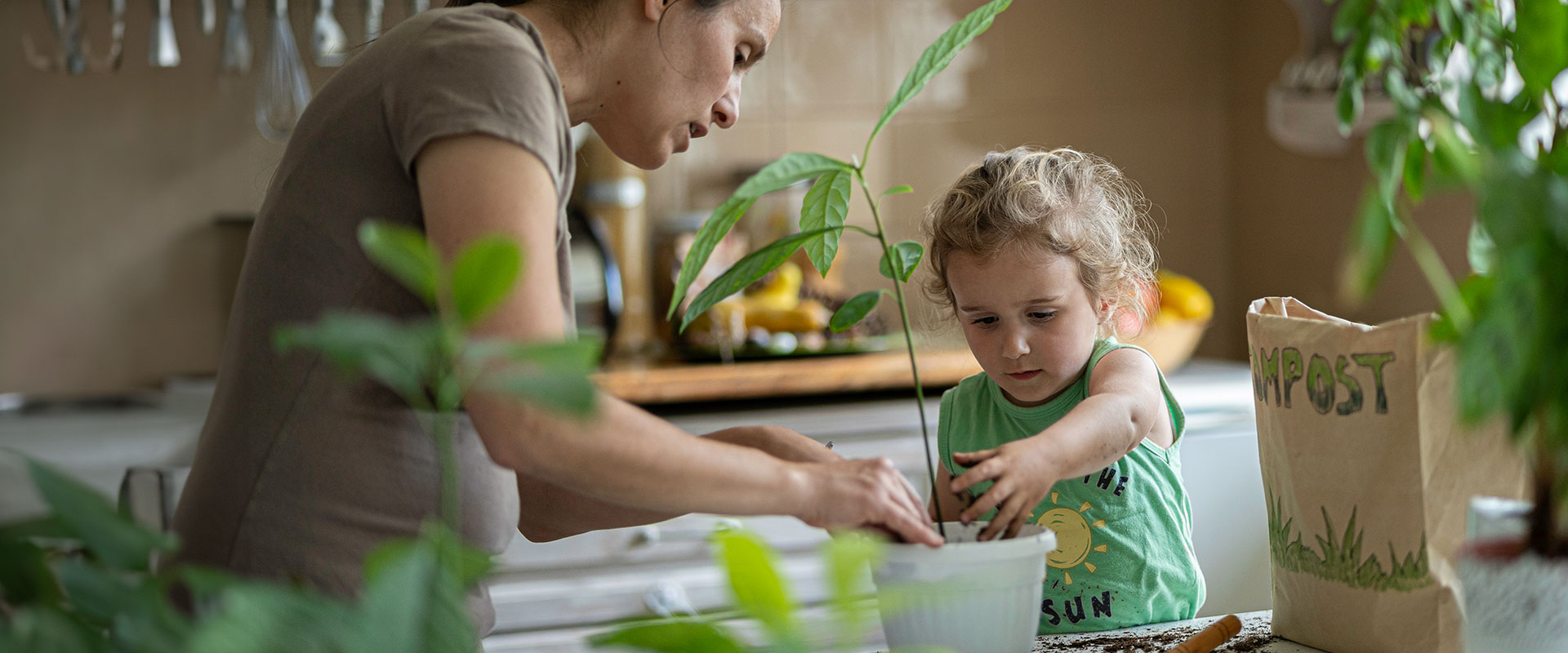6 Tips for Teaching Your Child to Respect the Environment

Having an appreciation and respect for the environment doesn’t mean having to make drastic changes to your lifestyle. Rather, simple integrations such as using compost bins, reducing your plastic waste, upcycling, litter picking, and walking instead of driving where possible, can all contribute towards living more consciously and helping the planet. While your child might still be at nursery, it’s never too early to awaken their sense of stewardship of planet earth. In fact, their early years are a great time to start getting them involved with efforts to help make the world a better place.
Here are six tips on how you can help your child begin their journey to becoming an eco-warrior, advocating for the environment and paving the way for a beautiful, bright and sustainable future.
- Outdoor Play
Children learn a LOT through play, and doing so in an outdoor setting can help your child to explore new environments, as well as develop their fine and gross motor skills. Outdoor play also offers an opportunity for your child to observe all kinds of interesting wildlife. By learning more about the other living creatures we share the earth with, your child’s respect for all living things can begin to grow as they explore the various habitats that teeny tiny bugs and larger animals call home.
- Get Gardening
Next time you decide to head outside for a bit of gardening, why not get your little helper on board? Young children can get involved with plenty of gardening projects, from scattering seeds to helping to water the plants, these stimulating tasks can be loads of fun and provide a sense of purpose and responsibility.
At Bright Horizons, outdoor play and learning is implemented throughout our nurseries. Not only does spending time outside present your child with all kinds of wonderful learning opportunities, it also allows them to investigate nature, learn about and experience different weather, and enjoy making mud and seeing plants grow. It can also be an excellent way to teach younger children about where some of their food comes from and the work that goes into growing fruit and vegetables.
- Compost Food Scraps Together
Similarly, composting your food scraps can be an excellent visual way to teach your child more about the environment. And because composting is so easy to do, everyone can get involved with the family’s effort to reduce their landfill contribution. It can be a fun, on-going challenge to teach your child what foods can be composted, asking them to help you “feed” the bins when you compost waste and asking: “what do you think, can we feed this to the bin?”. With these routine practices, you can begin to nurture an understanding of what it means to recycle. The older they get, the more information you can give them, helping them to establish a deeper understanding of their environmental responsibility.
- Read Educational Books
Reading and storytelling is another fantastic way for your child to learn. Not only does reading together have several benefits such as building self-confidence, sparking imagination, and growing literacy skills, books are also a brilliant gateway to broadening your child’s world. There are several age-appropriate reads that are themed around our natural world for you and your child to explore, with fun new ways for them to discover more about foreign lands, animals, forests, deserts, oceans, planets and more.
- Arts and Crafts with Recycled Materials
One simple, yet prominent way you can help contribute towards a better future is by reusing and recycling where possible. This might look like opting for pre-loved clothes or shoes every now and then, but have you ever considered an upcycled crafting session with your child? All that’s required is rethinking the usual materials you’d use and swap them for ones that are more environmentally friendly. For example, using used milk cartons for flowerpots, old magazines and newspapers for collages, or loo rolls to create kaleidoscopes or shakers. These are just some inventive ways you can get creative using what you already have at home.
- Lead by Example
What better way to teach your child to respect the world around them than by seeing their parent lead by example? For instance, as the weather warms up, you might want to swap one of your shorter regular car journeys for a walk together. And of course, using age-appropriate language to let them know why, such as: It’s such a beautiful day, why don’t we give the planet a break by walking to the store instead of driving?”. Or perhaps the next time you finish a carton of juice, you could show your child that it is disposed of in the recycling and not the general waste. Unless of course, you plan to upcycle it into a planter…
If you enjoyed this article, you can check out more of our early childcare resources in our Family Resource Zone!
And, if you’re not yet a Bright Horizons parent, but are interested in what our nurseries can offer your child on their exciting educational journey, book a personal tour at your local nursery today!





